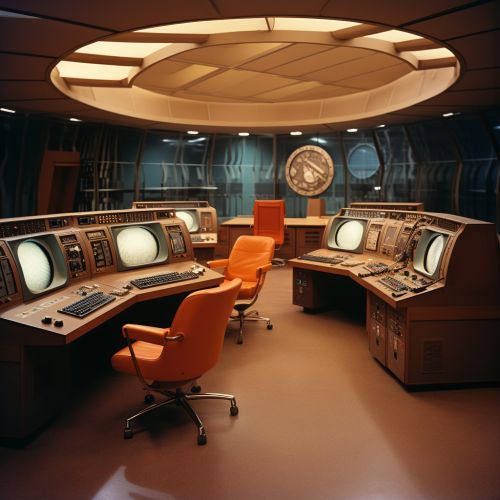Larry Roberts
Early Life and Education
Lawrence Gilman "Larry" Roberts was born on December 21, 1937, in Westport, Connecticut. His interest in electronics and technology was sparked at a young age, when he began building his own radios and televisions. He attended the MIT, where he earned both his Bachelor's and Master's degrees in Electrical Engineering.


Roberts continued his studies at MIT, earning a Ph.D. in Electrical Engineering in 1963. His doctoral thesis, titled "Machine Perception of Three-Dimensional Solids," explored the use of computers to interpret three-dimensional objects from two-dimensional images, a concept that would later become central to the field of computer vision.
Career
After completing his Ph.D., Roberts joined the MIT Lincoln Laboratory, a research center dedicated to improving the nation's defense capabilities through advanced technology. Here, he worked on the SAGE (Semi-Automatic Ground Environment) system, an early computer network designed to collect and analyze radar data for air defense.
In 1966, Roberts moved to the Advanced Research Projects Agency (ARPA), where he was tasked with creating a computer network that would allow researchers across the country to share data and resources. This project, known as the ARPANET, would eventually evolve into the modern internet.


Roberts' work on the ARPANET involved developing new protocols and technologies, many of which are still in use today. These include packet switching, a method of data transmission that breaks data into small packets for more efficient transmission, and the Network Control Program, the precursor to the modern Transmission Control Protocol/Internet Protocol (TCP/IP) suite.
In 1973, Roberts left ARPA to co-found Telenet, the first commercial packet-switching network and a predecessor to today's internet service providers. He served as the company's CEO until its acquisition by GTE in 1979.
Roberts continued to work in the telecommunications industry for several decades, founding five more companies and serving on the boards of numerous others. He remained a prominent figure in the field of computer networking until his death in 2018.
Legacy
Larry Roberts is widely recognized as one of the "fathers of the internet," along with his ARPA colleagues Bob Kahn, Vint Cerf, and Len Kleinrock. His work on the ARPANET laid the groundwork for the modern internet, and many of the technologies he developed are still in use today.
Despite his significant contributions to the field, Roberts often downplayed his role in the creation of the internet, stating in a 2001 interview that "the internet was not an invention, it evolved."
Roberts received numerous awards and honors for his work, including the Draper Prize from the National Academy of Engineering and the Prince of Asturias Award for Technical and Scientific Research. He was inducted into the Internet Hall of Fame in 2012.
